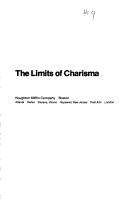| Listing 1 - 5 of 5 |
Sort by
|

ISBN: 2020044838 9782020044837 Year: 1976 Publisher: Paris: Seuil,
Abstract | Keywords | Export | Availability | Bookmark
 Loading...
Loading...Choose an application
- Reference Manager
- EndNote
- RefWorks (Direct export to RefWorks)
Cuba --- --1952-1959 --- --Cuba --- History --- Sources --- Cuba - History - 1933-1959 - Sources
Book
ISBN: 9782710331209 9782710331209 2710331209 Year: 2010 Publisher: Paris : Table ronde,
Abstract | Keywords | Export | Availability | Bookmark
 Loading...
Loading...Choose an application
- Reference Manager
- EndNote
- RefWorks (Direct export to RefWorks)
Mafia contre révolution dans le Cuba de l'après-guerre en 1946. Les principaux caïds de la mafia américaine se réunissent à l'hôtel Nacional de La Havane. Leur but, faire de Cuba une base avancée du crime en y créant l'un des empires du jeu le plus extravagant au monde. Juin 1948. Un jeune étudiant en droit versant dans le gangstérisme est accusé du meurtre d'un policier. Son nom est Fidel Castro.--[Memento]
Mafia --- Lansky, Ralph, --- Luciano, Lucky, --- Cuba --- Havana (Cuba) --- La Havane (Cuba) --- History --- Social conditions --- Histoire --- Conditions sociales --- Lansky, Meyer, --- Mafia - Cuba - Havana --- Lansky, Meyer, - 1902-1983 --- Luciano, Lucky, - 1897-1962 --- Cuba - History - 1933-1959 --- Havana (Cuba) - Social conditions - 20th century
Book
ISBN: 9782213631882 2213631883 Year: 2007 Publisher: Paris Fayard/Galilée
Abstract | Keywords | Export | Availability | Bookmark
 Loading...
Loading...Choose an application
- Reference Manager
- EndNote
- RefWorks (Direct export to RefWorks)
Heads of state --- Chefs d'Etat --- Biography --- Biographie --- Castro, Fidel, --- Cuba --- Politics and government --- Politique et gouvernement --- Chefs d'EtatBiography --- BiographieCastro, Fidel,Cuba --- CubaPolitics and government --- History --- Heads of state - Cuba - Interviews --- Heads of state - Cuba - Biography --- Castro, Fidel, - 1926-2016 - Interviews. --- Cuba - History - 1959-1990 --- Cuba - History - 1990 --- -Cuba - History - 1933-1959 --- Castro, Fidel, - 1926-2016

ISBN: 1626371369 9781626371361 1555876110 9781555876111 Year: 1998 Publisher: Boulder, Colorado : Lynne Rienner Publishers,
Abstract | Keywords | Export | Availability | Bookmark
 Loading...
Loading...Choose an application
- Reference Manager
- EndNote
- RefWorks (Direct export to RefWorks)
Based on previously untapped primary sources, this book examines the social forces that were released and shaped by the Cuban revolutionary war and, not least, the actions of real men and women attempting to forge a new future. García's focus on Matanzas province—an area highly representative of Cuba in demographics, racial patterns, economy, and education—allows a discussion of larger issues about the origins, character, and evolution of the armed struggle against Batista. Garcia argues that the resistance to Batista developed in response principally to local grievances that affected a wide cross-section of the social strata; Fidel Castro's July 26 Movement was able to forge a national revolution with such vitality and appeal precisely because it addressed those local issues. Among the archival records drawn on in the book are the testimonies and depositions of hundreds of men and women captured and tried by the Batista government. García also interviewed many of the leaders, combatants, laborers, and peasants who participated in various phases of the insurgency. The resulting study illustrates the development of methods of resistance, the evolution of varieties of rebellion, and how disparate social groupings emerged into a single revolutionary movement that swept away not only an unpopular government, but also an entire social system.
Government, Resistance to --- Civil resistance --- Non-resistance to government --- Resistance to government --- Political science --- Political violence --- Insurgency --- Nonviolence --- Revolutions --- History. --- Movimiento Revolucionario 26 de Julio. --- Organizaciones Revolucionarias Integradas --- Movimiento Revolucionario Veintiséis de Julio (Cuba) --- 26th of July Movement --- Movimiento 26 de Julio (Cuba) --- M-26-7 (Movement : Cuba) --- Cuba --- Matanzas (Cuba : Province) --- History --- Economic policy. --- Economic policy --- 1933-1959 --- Civil disobedience --- Movimiento Revolucionario 26 de Julio --- Cuba - History - 1933-1959. --- Matanzas (Cuba : Province) - History. --- Political resistance

ISBN: 0395140676 9780395140673 Year: 1974 Publisher: Boston Houghton Mifflin
Abstract | Keywords | Export | Availability | Bookmark
 Loading...
Loading...Choose an application
- Reference Manager
- EndNote
- RefWorks (Direct export to RefWorks)
Political systems --- Internal politics --- Cuba --- Castro, Fidel, --- History --- 328 <8=6> --- #SBIB:328H32 --- Parlement. Volksvertegenwoordiging. Regering en parlement--Latijns Amerika --- Instellingen en beleid: Midden en Latijns-Amerika --- Castro, Fidel --- -History --- -328 <8=6> --- 328 <8=6> Parlement. Volksvertegenwoordiging. Regering en parlement--Latijns Amerika --- -Political systems --- Küba --- Guba --- Kkuba --- Republic of Cuba --- República de Cuba --- キューバ --- Kyūba --- Kuuba --- -#SBIB:328H32 --- Kastro, Fidelʹ, --- Kastro Rus, Fidelʹ, --- Kāstrū, Fīdayl, --- Ruz, Fidel Castro, --- Castro Ruz, Fidel, --- Kaxtro, Fidel, --- Kastro, Phintel, --- Kāsṭrō, K̲apiṭal, --- קסטרו, פידל, --- 卡斯特罗菲德尔, --- كاسترو، فيدل، --- Castro, Fidel, - 1926-2016 --- Cuba - History - 1933-1959 --- Cuba - History - 1959-1990
| Listing 1 - 5 of 5 |
Sort by
|

 Search
Search Feedback
Feedback About
About Help
Help News
News